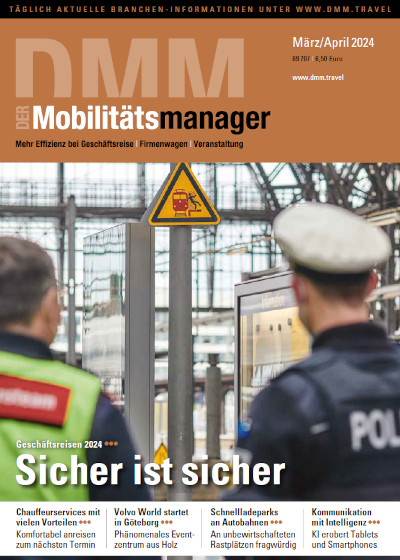Europäische Verbraucherschutzorganisationen haben Beschwerde bei der EU eingereicht. Sie halten die Klimaversprechen von 17 Airlines für unlautere Geschäftspraktik. Betroffen sind auch Lufthansa, Austrian Airlines, Eurowings und SWISS. Gemeint sind PR-Maßnahmen, mit denen sich Unternehmen in der Öffentlichkeit ein umweltfreundliches und verantwortungsbewusstes Image zulegen wollen – ohne wirklich etwas zu tun. Genau das wirft jetzt der Dachverband europäischer Verbraucherschutzorganisationen 17 europäischen Fluggesellschaften vor.
Das „Bureau Européen des Unions de Consommateurs“ (BEUC) hat deshalb Beschwerde bei der Europäischen Kommission eingereicht. Es wirft den 17 Airlines einen Verstoß gegen die Richtlinie über unlautere Geschäftspraktiken vor. Zu unterstellen, dass der Luftverkehr nachhaltig, verantwortungsvoll und grün sein kann, ist irreführend. Keine der vom Luftfahrtsektor angewandten Strategien ist derzeit in der Lage, Treibhausgasemissionen zu verhindern. Es ist wichtig, diese Behauptungen zu stoppen, schreibt die Organisation zu ihrer Beschwerde.
Ein Drittel der angeprangerten Fluggesellschaften gehören zur Lufthansa-Gruppe. Neben Lufthansa selbst sind auch Air Dolomiti, Austrian Airlines, Brussels Airlines, Eurowings und Swiss im Visier des BEUC. Aber auch Air Baltic, Air France, Finnair, KLM, Norwegian, Ryanair, SAS, Tap, Volotea, Vueling und Wizz Air wirft der Verbraucherschutz-Dachverband vor, sich ein grünes Mäntelchen umzuhängen.
«Angesichts der Tatsache, dass Flugreisen einen erheblichen und zunehmenden Anteil an den Treibhausgasemissionen haben, ist es unverständlich, dass Fluggesellschaften die Verbraucher mit klimafreundlichen Aussagen wie ‹CO2-kompensiert› oder "CO2-neutral" ködern. Wir fordern die Behörden dringend auf, die Sache in die Hand zu nehmen und gegen diese Greenwashing-Praxis vorzugehen, die die Verbraucher ernsthaft in die Irre führt», kommentiert BEUC-Vizegeneraldirektorin Ursula Pachl. Die Beschwerde unterstützen neben 17 anderen Mitgliedsorganisationen auch die Verbraucherzentrale Bundesverband in Deutschland, die Arbeiterkammer (Österreich) und die Fédération romande des consommateurs (Schweiz).
Man habe die Beschwerde bisher nicht gesehen, erklärt ein Sprecher von Lufthansa Group. Man nehme aber davon Kenntnis. "Davon losgelöst befassen wir uns selbstverständlich mit jeder Beschwerde, die uns zugeht, und prüfen diese sorgfältig." Als Gruppe habe man sich "ambitionierte Klimaschutzziele" gesetzt und strebe eine neutrale CO₂-Bilanz bis 2050 an, so der Sprecher von Lufthansa Group weiter. Bereits bis 2030 wolle man die Netto-Emissionen im Vergleich zu 2019 durch Reduktions- und Kompensationsmaßnahmen halbieren. Der Reduktionsfahrplan sei auch durch die unabhängige Science Based Targets Initiative validiert worden.
Die Lufthansa-Airlines und die elf anderen Fluggesellschaften sind nicht die ersten, die des Greenwashings bezichtigt werden. Auch Etihad, Delta und Air France-KLM wurde bereits einmal wegen Angaben zu ihrem ökologischen Fußabdruck angeklagt oder behördlich gerügt.
Original-Text der Beschwerde an die EU Kommission:
Consumer groups launch EU-wide complaint against 17 airlines for greenwashing
On Thursday, BEUC and 23 of its member organisations from 19 countries have filed a complaint to the European Commission and the network of consumer protection authorities (CPC) denouncing misleading climate-related claims by 17 European airlines.1 According to legal analysis commissioned by BEUC, such claims breach the EU rules tackling unfair commercial practices.
We are calling for a Europe-wide investigation into the issue and for the concerned airlines – and the entire sector – to stop making claims that give consumers the impression that flying is sustainable. This is simply untrue as flying is not sustainable and is not bound to become so in the near future. Where airlines have proposed consumers to pay extra ‘green’ fees based on such misleading claims, CPC authorities should request airlines to reimburse their customers.
BEUC members have identified numerous examples of misleading practices targeting consumers:
- Claims that paying extra credits can “offset”, “neutralise”, or “compensate” the CO2 emissions of a flight are factually incorrect as the climate benefits of offsetting activities are highly uncertain, while the harm caused by the CO2 emissions from air travel is certain.
- Airlines are misleading consumers when charging them more to contribute to the development of ‘Sustainable Aviation Fuels’ (SAFs): Such fuels are not market-ready and recently adopted EU legislation sets very low targets for how much they should represent in aircrafts’ fuel mix. This means that until SAFs will be massively available - beyond the end of the 2030s - they will at best only represent a minor share in planes’ kerosene tanks.
- Implying that air travel can be “sustainable”, “responsible” and “green” is deceptive. None of the strategies deployed by the aviation sector are currently able to prevent Greenhouse Gas emissions. It is important to stop these claims as with air traffic set to increase, emissions will keep rising for years to come.
Ursula Pachl, BEUC’s Deputy Director General of BEUC, commented: "When it is crystal clear that air travel causes a significant and increasing share of greenhouse gas emissions, it beggars belief that airlines freely lure consumers with climate-friendly messaging such as “CO2 compensated” or “CO2 neutral”. We urge authorities to take the matter into their hands and crack down on this greenwashing practice seriously misleading consumers.”
“Whether you pay a ‘green fare’ or not, your flight will still emit climate-harmful gases. Technological solutions to decarbonise aviation won’t become a massive-scale reality any time soon, so depicting flying as a sustainable mode of transport is pure greenwashing. At a time when many want to travel more sustainably, airlines should urgently stop offering consumers a fake peace of mind.”
“Shifting consumer demand towards more sustainable transport modes is critical to cut emissions. Airlines must stop giving consumers the false impression that they are choosing a sustainable transport mode. In addition, decision makers must push for solutions to provide consumers with reliable, attractive, and sustainable alternatives such as higher-quality long-distance rail connections.”
BEUC member organisations participating in this action are: Arbeiterkammer (Austria), Testachats/Testaankoop (Belgium); Асоциация Активни потребители (Bulgaria); Forbrugerrådet Tænk (Denmark); CLCV and UFC-Que Choisir (France); Kuluttajaliitto – Konsumentförbundet ry (Finland); EKPIZO (Greece); Tudatos Vásárlók Egyesülete (Hungary); Altroconsumo (Italy); Consumentenbond (Netherlands); Forbrukerrådet (Norway); Fundacja Konsumentów and Federacja Konsumentów (Poland), DECO (Portugal), Spoločnosť ochrany spotrebiteľov (S.O.S.) (Slovakia), Zveza potrošnikov Slovenije (Slovenia), ASUFIN, CECU and OCU (Spain), Sveriges Konsumenter (Sweden), Fédération romande des consommateurs (Switzerland). vzbv (Germany) issued legal warnings to several traders identified in the alert. Quelle: www.beuc.eu / DMM



 Besuchen Sie uns auch auf Facebook ...
Besuchen Sie uns auch auf Facebook ...